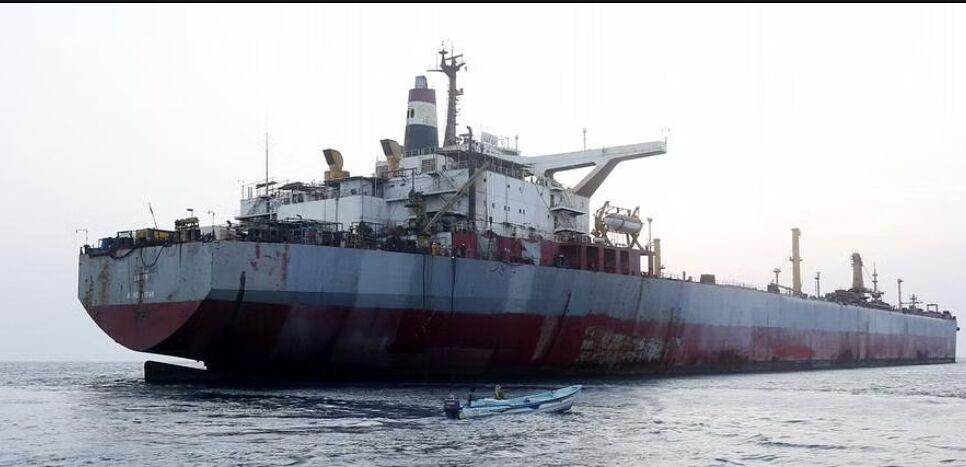United Nations Leads International Effort to Prevent Environmental Disaster in Yemen
The United Nations is leading a salvage operation off the coast of Yemen to prevent a potential environmental disaster by transferring over 1.1 million barrels of oil from a decaying tanker to a replacement vessel. The neglected tanker, FSO Safer, poses a significant risk due to its compromised structure and seawater in its engine compartment. The UN has taken on the risk and expense of the operation, estimated to cost $144 million USD, as no other parties were able or willing to do so. International contributions are being sought to cover the cost, with the United States and Canada already pledging significant amounts. The potential consequences of an oil spill from the Safer are severe, including disruption to global shipping, extensive ecological damage, and harm to millions of people. The current operation involves transferring the oil to a replacement vessel through a ship-to-ship process, followed by connecting it to an undersea pipeline and installing a mooring buoy for stability. The operation faces risks from extreme temperatures, aging pipes, and sea mines. Despite initial obstacles from Houthi rebels who control the area, the UN's swift response highlights its commitment to preventing a disaster and potentially easing the ongoing humanitarian crisis in Yemen.
An international team, led by the United Nations (UN), is currently undertaking a delicate salvage operation off the coast of Yemen to prevent a potential environmental disaster.
The mission aims to transfer over 1.1 million barrels of oil from a decaying tanker known as FSO Safer to a replacement vessel. The Safer, which has not been maintained for eight years, poses a significant risk due to its compromised structural integrity and the presence of seawater in its engine compartment.
The vessel holds four times the amount of oil spilled in the infamous 1989 Exxon Valdez disaster. The UN, recognizing the urgency of the situation, stepped in to take on the risk and expense of the operation when no other parties were able or willing to do so.
The overall salvage operation, including finding a permanent storage solution for the oil, is estimated to cost around $144 million USD. International contributions are essential to cover this expense, with the United States and Canada already pledging $10 million USD and $2.5 million CAD, respectively.
The UN has highlighted that this cost is a fraction of the estimated $20 billion USD it would take to clean up an oil spill from the tanker. The potential consequences of an oil spill from the Safer are severe and would not only disrupt global commercial shipping but also cause extensive ecological damage to marine life, coral reefs, and mangroves.
Furthermore, millions of people would be exposed to highly polluted air, fishing communities would be devastated, nearby ports would need to close, and shipping through the Suez Canal would be disrupted.
The current operation involves transferring the oil to a replacement vessel called Yemen through a ship-to-ship transfer process set to be completed in 19 days. Following the oil transfer, the replacement vessel will be connected to an undersea pipeline to receive oil from the fields.
Simultaneously, a catenary anchor leg mooring (CALM) buoy will be installed to secure the replacement vessel, a process that must be finished by September to ensure the prevention of any future environmental catastrophes. The risks associated with the operation include scorching summer temperatures, aging pipes, and sea mines in the surrounding waters.
To mitigate these risks, a technical support vessel is on standby and ready to respond to any potential oil leaks during the operation. The Safer tanker has been left abandoned for eight years near the Ras Isa oil terminal, which is controlled by Yemen's Houthi rebels.
The Houthi rebels initially prevented salvage operations, but they finally agreed in March to allow for the offloading of the oil. The UN's swift and coordinated response to this critical situation highlights the organization's commitment to averting a human and environmental catastrophe.
The success of this operation will not only eliminate the immediate risk posed by the Safer but also serve as a promising step towards a more durable ceasefire between Yemen's warring parties, potentially easing the ongoing humanitarian crisis in the country.




